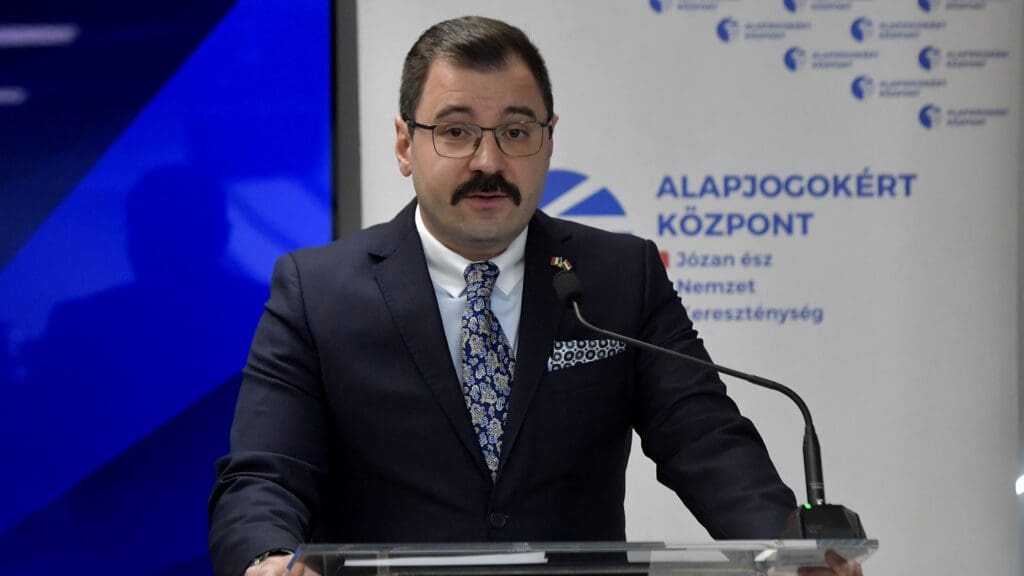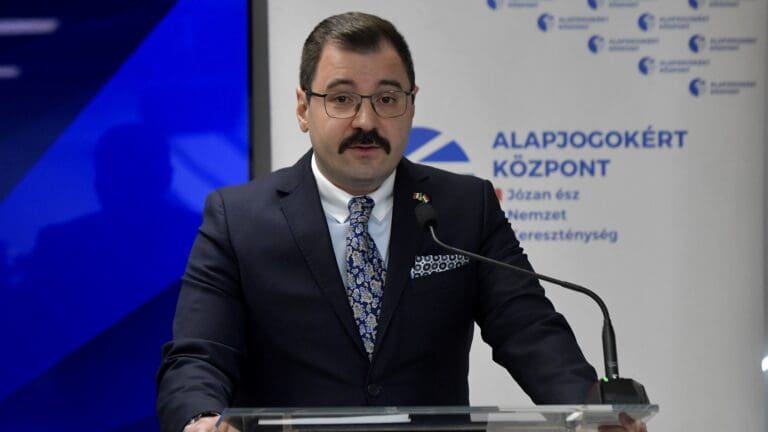‘We cannot give up on ethnic politics because that would mean self-abandonment,’ said the Prime Minister’s Chief Advisor Katalin Szili on Sunday in Bratislava, Slovakia where she delivered a speech at a commemoration event for the displaced Hungarians from the Felvidék (Uplands).
Szili, who has also participated in the commemoration event in previous years, recalled the inhumanity of the displacements and discussed the lasting consequences of the Beneš Decrees, the necessity of continued ethnic-based politics, as well as the current state of national minorities and their possibilities for improvement in connection with the upcoming European Parliament elections next year.
She went on to state that it is essential to remember the Beneš Decrees in the shadow of history because the regulations that have affected Hungarians for decades still cast a shadow today. These decrees are used as a reference to seize properties from members of the Hungarian community. She emphasized that this situation is untenable for Hungary and Slovakia, both of which have been part of the European Union for nearly two decades.
Katalin Szili also touched upon the parliamentary elections held last weekend in Slovakia,
where the Hungarian party of Uplands, the Alliance, did not gain representation in the parliament. She emphasized that the Hungarian minority in Uplands must continue its political efforts even without parliamentary representation to do away with historically outdated laws that disadvantage them.
Log in or sign up to view
See posts, photos and more on Facebook.
The Prime Minister’s Chief Advisor also commented on the European Union’s approach to the issues of national minorities, pointing out that it is lacking both in substance and in its institutional framework. Therefore,
it is essential for the Hungarian minority in Slovakia to gain representation in the European Parliament during next year’s elections.
She reminded all that recently, French President Emmanuel Macron declared that they would initiate the process of establishing autonomy for Corsica, a move that might prompt the EU leadership and national minority communities to consider the legitimacy of autonomous aspirations. She added: ‘Everyone needs to understand that we are not against anyone; we want to live in good neighbourly relations. When we talk about these issues, we only seek what is rightfully due to every European citizen.’
The Beneš Decrees, enacted after World War II, primarily signify the laws that established the collective responsibility of Germans and Hungarians residing in Czechoslovakia. These decrees had severe implications for the treatment of the German and Hungarian minorities and were at odds with human rights principles. Practically all of the ethnic Germans and Hungarians, many of whom had roots in Czechoslovakia going back centuries prior to World War II, lost their Czechoslovak citizenship and properties, ultimately being displaced from their homes. Both successor states resulting from the dissolution of Czechoslovakia, namely the Czech Republic and Slovakia, still regard the Decrees as part of their legal framework.
Related articles:
Source: Hungarian Conservative/MTI








